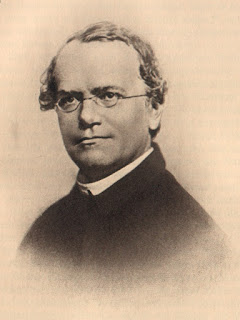The Case of Gregor Mendel as a "Silver Lining Counterfactual"
I’m still bogged down writing about the Fourth
Reich, but I thought I would make a passing reference to the latest instance of a journalist using a counterfactual as a “hook” to grab
readers’ attention.
In her recent New York Times review
of Siddhartha Mukherjee’s book, The Gene: An Intimate History, Jennifer Senior
writes:
“Thank heavens Gregor Mendel was a
lousy priest. Had he shown even the faintest aptitude for oratory or
ministering to the poor, he might never have determined the basic laws of
heredity. But bumbling he was, and he made a rotten university student to boot;
his failures drove him straight to his room, where he bred mice in secret. The
experiment scandalized his superiors.”
Senior’s reference can be seen as a
“silver lining counterfactual,” a “what if?” scenario that allows us to see how
the seeds of success can lie latently within failure. I will keep my eye out for other examples of how important historical
figures might never have arrived at their subsequent achievements had they not first endured initial setbacks.



Comments